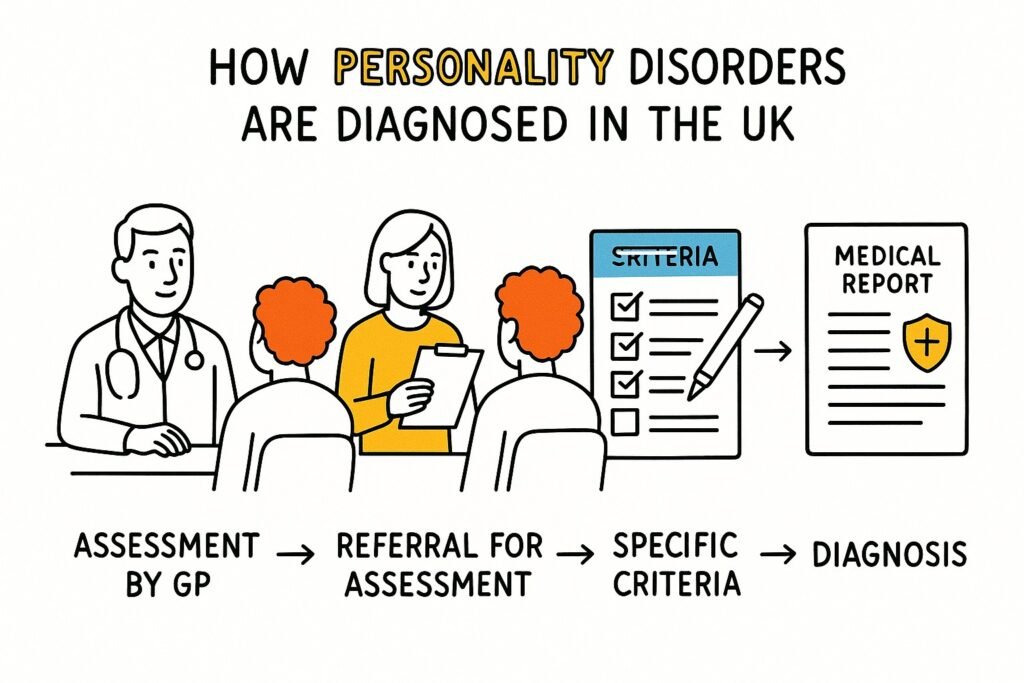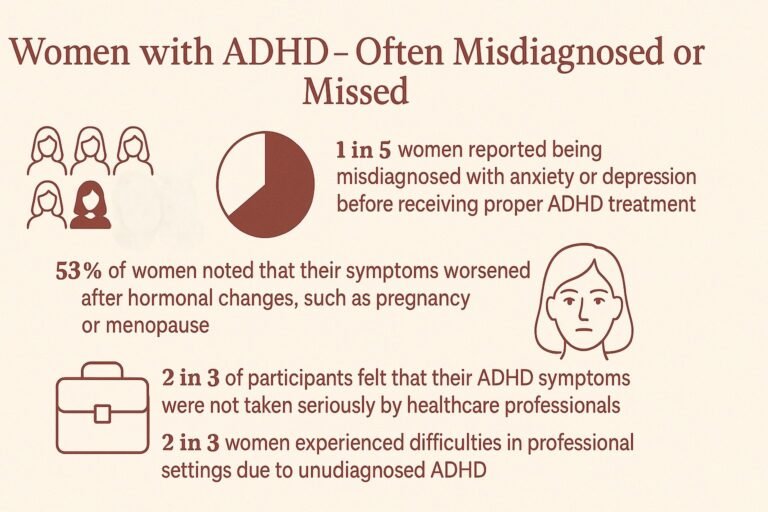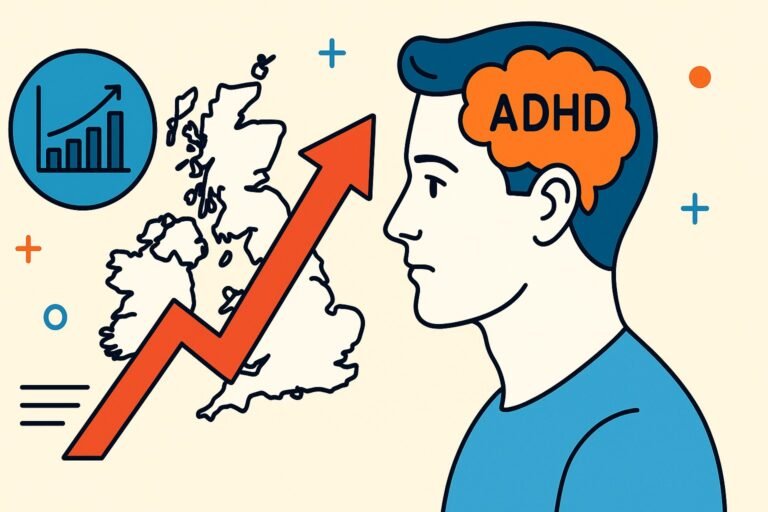How Personality Disorders Are Diagnosed in the UK
Over the course of your life, you may encounter challenges that prompt you to seek help, and understanding how personality disorders are diagnosed in the UK is imperative. This process typically involves a detailed assessment by qualified mental health professionals, who will use standardised guidelines to evaluate your symptoms. The importance of early diagnosis cannot be overstated, as it can lead to effective treatment plans that significantly improve your quality of life. By familiarising yourself with this diagnostic process, you empower yourself in your mental health journey.
Key Takeaways:
- Diagnosis of personality disorders in the UK typically involves a comprehensive assessment by a qualified mental health professional, including clinical interviews and standardised assessment tools.
- Diagnostic criteria are primarily based on the International Classification of Diseases (ICD) or the Diagnostic and Statistical Manual of Mental Disorders (DSM), with both frameworks providing detailed guidelines for identifying specific disorders.
- Assessment often includes gathering information from multiple sources, such as the individual’s history, self-reported symptoms, and reports from family or friends, to ensure a thorough understanding of the individual’s functioning.
- It is important to differentiate personality disorders from other mental health conditions, as overlapping symptoms can complicate the diagnostic process.
- Ongoing monitoring and evaluation may be required post-diagnosis to assess the effectiveness of treatment and to adapt therapeutic approaches as needed.
Understanding Personality Disorders
A personality disorder is a type of mental health condition that affects how you think, feel, and behave. These disorders can create significant challenges in your social interactions, work life, and general emotional well-being. Generally, personality disorders are characterised by inflexible and pervasive patterns of behaviour that deviate from cultural expectations, leading to distress and impairment in various areas of your life.
Definition and Categories
By definition, personality disorders are enduring patterns of behaviour and inner experiences that differ markedly from the expectations of your culture. They are categorised into three clusters: Cluster A includes disorders characterised by odd or eccentric behaviour, Cluster B encompasses dramatic, emotional, or erratic behaviours, and Cluster C involves anxious or fearful behaviours. These classifications help in understanding the nature of the disorders you may encounter.
Prevalence in the UK
After extensive research, studies indicate that the prevalence of personality disorders in the UK is approximately 6-10% of the population. These disorders can have a lasting impact on individuals and those around them, leading to substantial social and economic costs.
At present, estimates suggest that around 1 in 10 people in the UK may be affected by a personality disorder, reflecting its wide-reaching implications. In particular, conditions such as Borderline Personality Disorder and Antisocial Personality Disorder are noted for their significant effects on daily life, relationships, and overall mental health. Recognising these disorders is important, as proper diagnosis and treatment can lead to improved outcomes for you or a loved one grappling with these challenges.

Diagnostic Criteria
There’s a structured approach to diagnosing personality disorders in the UK, primarily based on specific criteria laid out in diagnostic manuals. Mental health professionals assess your symptoms against standardised criteria, which include persistent patterns of thoughts, feelings, and behaviours that significantly deviate from cultural expectations. Accurate diagnosis is important in determining effective treatment pathways tailored to your unique situation.
DSM-5 vs. ICD-10/ICD-11
Among the frameworks used for diagnosis in the UK, the DSM-5 and ICD-10/ICD-11 are notable. The DSM-5, developed by the American Psychiatric Association, is widely used in clinical settings, while the ICD-10/ICD-11, created by the World Health Organisation, serves both diagnostic and statistical purposes globally. Each provides different criteria and classifications, influencing how your disorder is understood and treated.
Key Symptoms and Characteristics
Behind every personality disorder lies a complex interaction of symptoms that affect your daily life. These may include unstable relationships, impulsivity, and patterns of intense emotional responses. Such symptoms can disrupt your personal and professional life, often leading to a sense of distress or dysfunction. Identifying these key characteristics is vital for you to receive appropriate support and intervention.
Also, understanding the key symptoms can help you gain insight into your experiences. For instance, you may find yourself struggling with intense mood swings or possibly feeling an overwhelming sense of emptiness. Characteristics like impulsive behaviour can put you in risky situations, while difficulty maintaining relationships can lead to isolation and loneliness. Recognising these patterns is important in seeking help and beginning on the path to recovery.
The Assessment Process
Many factors contribute to the assessment process for personality disorders in the UK. This typically begins with a thorough evaluation by a mental health professional, who considers your symptoms and personal history. A detailed understanding of how your behaviours affect your daily life and relationships is vital for accurate diagnosis. The assessment often integrates clinical interviews and psychological testing to provide a comprehensive overview of your mental health.
Clinical Interviews
After your initial consultation, a clinical interview may be conducted. This involves a mental health professional discussing your symptoms, feelings, and experiences in-depth. The purpose is to gather information about your history, relationships, and any factors contributing to your condition. It is a vital step in formulating an accurate diagnosis and understanding your needs.
Psychological Testing
Any psychological testing performed during the assessment includes standardised questionnaires and assessments designed to evaluate your personality traits and behaviours. These tests aim to provide objective data that complements the information gathered from interviews, offering a clearer picture of your mental health.
But it’s vital to note that psychological testing isn’t a standalone measure; it works alongside clinical observations. These tests can reveal inconsistencies in your self-perception or highlight traits that may contribute to your difficulties. Moreover, they can inform the development of a tailored treatment plan. Through this extensive approach, you’ll receive accurate insights into your condition, paving the way for effective support.
Role of Mental Health Professionals
After you seek help for potential personality disorders, the role of mental health professionals becomes pivotal. They employ a range of diagnostic tools and interviews to assess your symptoms and overall mental health. This process not only helps in identifying the specific disorder but also guides the appropriate treatment plan tailored to your needs.
Psychiatrists and Psychologists
After receiving your referral, it is typically psychiatrists and psychologists who will conduct your assessment. Psychiatrists, being medical doctors, can prescribe medications, while psychologists often focus on therapeutic interventions. Both play a significant role in diagnosing personality disorders through structured interviews and standardised assessments.
Other Healthcare Providers
Healthcare professionals, including nurses, social workers, and occupational therapists, also contribute significantly to diagnosing and managing personality disorders. They assist in the therapeutic process, providing support, resources, and coordination of care.
Consequently, these other healthcare providers enhance the diagnostic process by offering a more comprehensive view of your situation. They can observe behavioural patterns and emotional responses in various settings, providing valuable insights that specialists may not fully capture. By collaborating with psychiatrists and psychologists, they ensure that your treatment plan is holistic, addressing both psychological and social aspects of your well-being.
Importance of Accurate Diagnosis
Not having an accurate diagnosis can lead to significant consequences, as misdiagnosis can result in inappropriate treatment and prolonged suffering. Without a clear understanding of your symptoms, it becomes difficult to create an effective management plan tailored to your needs. Accurate diagnosis is not only vital for your treatment journey but also for ultimately improving your quality of life.
Implications for Treatment
Any misdiagnosis can hinder your access to appropriate therapies and support. When your specific personality disorder is misunderstood, standard treatment protocols may not address your unique challenges, potentially exacerbating your symptoms and affecting your overall mental health.
Impact on Patients’ Lives
After receiving an accurate diagnosis, you will likely find it easier to understand your behaviours, emotions, and relationships. This clarity can significantly improve your interactions with others and empower you to seek the appropriate therapy, which can lead to enhanced coping strategies and a better quality of life.
At the same time, an accurate diagnosis can have profound implications for your mental health and daily functioning. Recognising your condition allows you to access tailored interventions, leading to improved relationships with family and friends. You may find that understanding your behaviours helps reduce feelings of isolation and enables you to engage more fully in personal and professional relationships. This newfound insight can set you on a path to recovery, where managing your symptoms becomes less overwhelming and more achievable.
Challenges in Diagnosis
Despite advancements in mental health awareness, diagnosing personality disorders in the UK remains a challenging process. Variability in symptoms can lead to misdiagnosis, as individuals may exhibit overlapping traits with other mental health conditions. This intricacy necessitates thorough assessments by specialists, making timely and accurate diagnosis difficult for many seeking treatment.
Stigma and Misunderstandings
About the challenges in diagnosis lie deep-rooted stigma and misunderstandings surrounding personality disorders. Many individuals may avoid seeking help due to societal perceptions, fearing label implications or judgment. This not only exacerbates their symptoms but also hinders their ability to obtain the support they desperately need.
Comorbidity with Other Disorders
On the topic of comorbidity, it is common for individuals with personality disorders to also face other mental health challenges, such as depression or anxiety. This overlap can complicate the diagnostic process, as symptoms of one disorder may mimic or mask those of another. It is vital for clinicians to conduct comprehensive evaluations to identify all present disorders and tailor effective treatment plans.
Misunderstandings about the nature of personality disorders can lead to underestimating the impact of comorbidity. When you struggle with a personality disorder alongside conditions like depression or substance abuse, the complexity of treatment increases significantly. You may find your symptoms intertwining, causing further confusion and distress. Addressing all aspects of your mental health is vital for effective management, and clinicians must consider every concurrent disorder to help you make progress.
Summing up
So, understanding how personality disorders are diagnosed in the UK can help you navigate the complex mental health system. You may start by discussing your symptoms with a General Practitioner, who might refer you to a mental health professional for a comprehensive assessment. This assessment often includes interviews, self-report questionnaires, and observations of your behaviour. The mental health professional will analyse your history and experiences, using established criteria from the DSM-5 or ICD-10, to arrive at an accurate diagnosis. This thorough approach ensures that you receive appropriate support and treatment tailored to your needs.
FAQ
Q: How are personality disorders identified by healthcare professionals in the UK?
A: In the UK, the identification of personality disorders typically involves a comprehensive assessment by a qualified mental health professional, such as a psychiatrist or psychologist. This process includes a detailed clinical interview, psychological evaluations, and a review of the individual’s personal history and behaviour. The professional may also use standard diagnostic criteria from the Diagnostic and Statistical Manual of Mental Disorders (DSM-5) or the International Classification of Diseases (ICD-10) to aid in the diagnosis.
Q: What criteria are used to diagnose personality disorders in the UK?
A: The criteria for diagnosing personality disorders in the UK are often based on the DSM-5 or ICD-10 frameworks. To meet the diagnostic criteria, an individual must display enduring patterns of behaviour, inner experience, and cognition that deviate significantly from cultural expectations. These patterns typically manifest in various contexts, leading to significant distress or impairment in social, occupational, or other important areas of functioning. The symptoms should be stable over time and not attributable to other mental health conditions.
Q: Is a referral necessary to get assessed for a personality disorder in the UK?
A: While a referral from a general practitioner (GP) is often helpful, it is not always necessary to seek assessment for a personality disorder. Individuals can directly contact mental health services or specialist centres. However, obtaining a referral might expedite the process and ensure a coordinated approach to the individual’s care, especially when accompanied by relevant medical history and notes.
Q: What role do psychological tests play in the diagnosis of personality disorders?
A: Psychological tests can be valuable tools in the assessment of personality disorders. These tests may include standardised questionnaires and structured interviews that provide quantifiable data about an individual’s behaviours, thoughts, and feelings. While they cannot solely determine a diagnosis, they complement clinical evaluations and help mental health professionals gain a deeper insight into the individual’s personality traits and functioning.
Q: Can personality disorders be diagnosed at any age in the UK?
A: Personality disorders are generally not diagnosed in individuals under the age of 18, as personality development continues throughout adolescence. However, some specific disorders may be identified in early adulthood. Mental health professionals usually focus on understanding the individual’s behaviour and functioning over time before confirming a diagnosis. In young individuals, there may be an emphasis on monitoring and treatment before labelling a disorder, which allows for better developmental considerations.







